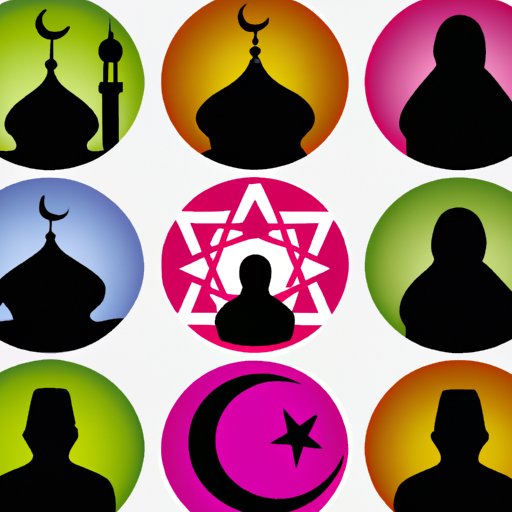Introduction
Islam is a religion, culture, and way of life that is practiced by more than 1.8 billion people worldwide. While there are many facets to this ancient faith, it is important to understand the relationship between its religious teachings and cultural practices. To begin our exploration of this topic, let us first define what is meant by “Islam”.
The word “Islam” is derived from the Arabic term aslama, which means “to submit” or “surrender” in English. In Islamic belief, submission is an acknowledgment of God’s supreme authority and a sign of one’s devotion to God and His teachings. This concept of surrendering oneself to God is at the very core of the Islamic faith.
Exploring the Relationship between Islamic Religion and Culture
When exploring the relationship between Islamic religion and culture, it is important to consider the influence of Islamic faith on Muslim cultures. The teachings of the Quran, the primary source of Islamic doctrine, have a profound impact on the values and beliefs of Muslims. For example, the Quran emphasizes the importance of justice and mercy, respect for the elderly, and charity towards the poor. These values form the basis of many cultural practices in Muslim societies.
In addition to religious teachings, Islamic culture is also heavily influenced by the Prophet Muhammad’s teachings and example. Known as the Sunnah, these teachings serve as a guide for how Muslims should live their lives. From dietary restrictions to marriage practices, the Sunnah has shaped the culture of Muslims around the world.
Finally, Islamic traditions are also shaped by local customs and cultural norms. For example, in some countries, the practice of wearing the hijab (headscarf) is seen as a sign of modesty and devotion to God. In others, however, it is not a requirement and may even be seen as a sign of oppression. This demonstrates the importance of understanding the local context when examining the relationship between Islamic religion and culture.

Understanding the Intersection of Islamic Beliefs and Customs
To further explore the intersection of Islamic beliefs and customs, it is important to investigate the diversity of Islamic traditions around the world. Despite the fact that the Quran is accepted by all Muslims as the source of divine guidance, interpretations of its teachings vary widely. For example, while the majority of Muslims believe that women should cover their heads in public, some countries allow women to wear whatever they choose. This illustrates the potential for different interpretations of Islamic teachings.
It is also important to compare and contrast Islamic religion and culture. While the two are closely intertwined, there are distinct differences between them. Religion is focused primarily on spiritual beliefs and practices, while culture is rooted in social customs and traditions. Understanding the distinctions between these two aspects of Muslim identity can help us gain a deeper appreciation for the diversity within the Islamic faith.
Conclusion
To conclude, it is clear that Muslim culture and religion are deeply intertwined. Islamic faith influences Muslim cultures through its teachings and examples, while local customs and cultural norms shape the interpretation of those teachings. Additionally, understanding the diversity of Islamic traditions around the world helps us appreciate the unique ways in which Muslims practice their faith. Ultimately, this knowledge can help foster greater understanding and appreciation for the richness of Islamic culture and faith.
In summary, this article explored the relationship between Islam, religion, and culture. We examined the influence of Islamic faith on Muslim cultures and investigated the diversity of Islamic traditions around the world to better understand their intersection. With this insight, we can gain a deeper appreciation for the complexity of the Islamic faith and its role in shaping Muslim cultures around the world.
(Note: Is this article not meeting your expectations? Do you have knowledge or insights to share? Unlock new opportunities and expand your reach by joining our authors team. Click Registration to join us and share your expertise with our readers.)
